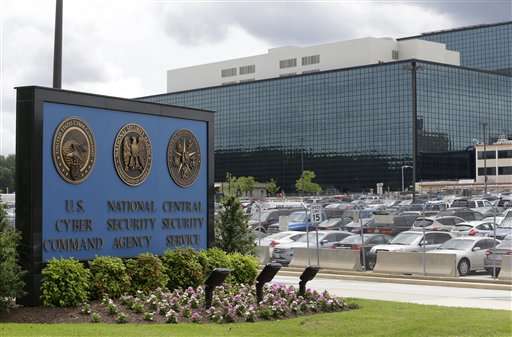Analysis: NSA bill barely touches the agency's vast powers

The surveillance law enacted this week stands as the most significant curb on the government's investigative authorities since the 1970s. But it's practically inconsequential in the universe of the National Security Agency's vast digital spying operations, a technical overhaul of a marginal counterterrorism program that some NSA officials wanted to jettison anyway.
After a six-month transition, the new law will end the NSA's bulk collection of Americans' phone records, moving instead to a system of case-by-case searches of records held by phone companies.
The existence of the program, in place since shortly after the attacks of Sept. 11, 2001, was perhaps the most startling secret revealed by former NSA contractor Edward Snowden, because it so directly affected the privacy of Americans. It was the first Snowden disclosure published by the journalists with whom he shared documents, and it landed with a thunderclap.
But in the two years since Snowden took up exile in Russia to avoid prosecution in the U.S., his documents have fueled dozens of revelations of NSA surveillance operations, disclosing how the agency seeks to exploit Internet communications. None of those programs are affected by the law President Barack Obama signed Tuesday night.
"It's being talked about like it's the Declaration of Independence or something," said Robert Deitz, a former NSA lawyer. "These adjustments are marginal."
Most of the Snowden disclosures have shed light on the NSA's basic mission of gathering foreign "signals intelligence," but the way the agency does its job in the Internet age by necessity involves exploiting weaknesses in the same technology the rest of us use. And it also means the NSA "inadvertently" collects the content of a lot of American communications. Exactly how much is unknown and perhaps unknowable. But the government is allowed under certain circumstances to search that data, none of which was obtained with a specific, individual warrant.
And Snowden has not been the only source of disclosures about government surveillance.
This week, The Associated Press reported that the FBI has been flying spy planes over American cities. And in January, the Drug Enforcement Administration formally acknowledged that it maintained a sweeping database of phone calls made from the U.S. to foreign countries, a program it discontinued in 2013. It is unclear exactly how the information collected in those efforts has been used.
Some members of Congress have expressed fierce opposition to the way the intelligence community currently handles the private data it collects on Americans, especially the private information collected from U.S. technology companies under the PRISM program, also revealed by Snowden.
"Under current law, the government can search the database on a fishing expedition and get those communications created under this program, including searching information about a U.S. citizen," Rep. Ted Poe, a Texas Republican and former judge, said during a House Judiciary Committee hearing in April. "This can be done without a warrant. That seems to violate the Fourth Amendment of the Constitution to me."
But efforts to address that issue in this week's USA Freedom Act went nowhere—because they had no chance of passing. Unlike the phone records program, the PRISM collection has proven instrumental in foiling terrorist plots, and lawmakers are loath to tinker with it. The Obama administration earlier this year tightened some rules on how data on Americans is handled, but rejected more rigorous procedures recommended by a presidential task force on surveillance.
NSA leaders, meanwhile, are shedding few tears over losing the authority to collect Americans' phone records, former officials say. Independent reviews of the program found that it wasn't a critical tool, and former NSA officials revealed that some inside the agency had wanted to abandon it. The only reason the NSA didn't propose keeping the records with the phone companies years ago, former Director Keith Alexander has said, is that no one wanted to seek legislation from Congress while the program remained a secret.
Searches of phone company records under the USA Freedom Act may not work as swiftly as the current system, but the NSA will also gain access to mobile phone records it doesn't now collect under the program.
"The damage that's been done to our intelligence capabilities is modest," said Stewart Baker, a former NSA general counsel.
Indeed, he and other analysts said, other fallout from the Snowden leaks has played a stronger role in hemming in the NSA than anything Congress has done. The Obama administration curbed some foreign surveillance; foreign governments and technology companies are less eager to cooperate, and Apple and Google have begun encrypting mobile data, making it more difficult for governments to eavesdrop.
Among those who agree with a modest appraisal of the USA Freedom Act are privacy activists. While calling it landmark legislation, they also lament its limits.
"No one should mistake this bill for comprehensive reform," said Jameel Jaffer, legal director of the American Civil Liberties Union. "The bill leaves many of the government's most intrusive and overbroad surveillance powers untouched, and it makes only very modest adjustments to disclosure and transparency requirements
© 2015 The Associated Press. All rights reserved.


















